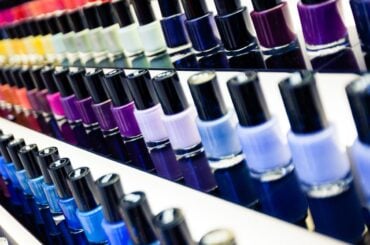What do you do when kids accidentally (or not-so-accidentally) say a curse word or an offensive term? Or if they ask you what [BLEEEEEP] means and whether it’s a bad word?
Try not to overreact — remember that it’s a kid’s job to constantly experiment and learn. Certain words might be triggering for you or others around you, but your child doesn’t understand why.
You CAN help to provide your kiddo with some important info and support during those situations — or when you have a little more time/space to chat later in the day.
When you think about it, curse words and some insults and slurs are kind of hard to explain. After all, they’re just words, and we’re always trying to encourage kids to express themselves in words. What makes “bad words” — well, bad?
Understanding the nuances of swear words and other not-so-savory words is actually an important part of honing social and communication skills as kids get older. They WILL hear them at some point, if they haven’t already. So opening up these conversations can actually be beneficial!
Here’s a script to help you get started.
Of course, your comfort level with some of these “risky” words will depend on your cultural context, your kid’s maturity level, and your personal/family experience. So feel free to add in the examples that make sense to you!
What to say to kids about “bad words”
“Words themselves are not really ‘good’ or ‘bad.’ But words do matter. If someone uses a word to make another person or people feel bad or hurt or scared, that’s what makes it a bad word.
There are certain words that have been used to make people feel bad a lot. Let’s call those ‘risky’ words.
Some risky words are swear or curse words. Have you heard any of those?
Sometimes people say them when they’re angry or just to get attention. Some curse words mean something silly or gross, or are about things that only adults would really understand.”
What might make a word “bad”
“Some risky words are insults or slurs. These can be like calling someone ‘stupid.’ It’s hurtful because it’s saying there’s something wrong with the way a person is. [Add examples as appropriate.]
People often use these words just to make people feel bad — like when you call someone a word that means something yucky, or that makes them feel less important than you.
Words that are used to make someone feel bad because of differences in ability, appearance, race, language, gender, or other things that the person can’t control are even more harmful. When people say those words to one person, it can hurt a whole group of people and remind them of being treated unfairly.”
Sometimes a “bad” word can turn “good”
“But at other times, people can use those same hurtful words in positive ways. Like when someone calls themselves a ‘weirdo’ with confidence, it can be empowering instead of a way to make someone else feel bad.
You don’t always know how someone you’re talking to will feel when they hear a risky word, so that’s why we just try to avoid using those words in most situations.
But there are certain words that just don’t belong to us, so we NEVER say them — to anyone. If we’ve never been hurt by a word, then we can’t be the ones to try to make it into a positive, powerful word. [Give an example as needed.]”
When to NEVER use “bad words”
“We should NEVER call someone a risky word. If you’re angry or frustrated, you can always find another way to express that. If you start a sentence with ‘I feel…’ or ‘I noticed…’ it helps you think more calmly and avoid hurting the person you’re talking to.
It’s also not OK to say those risky words in school because there are many people around and some of them might feel bad or scared if you do say those words. [Add your own family/house rule, if you have one.]
We should always try to use respectful words when we’re talking to and about other people. Let’s think of an example of being angry at someone, but choosing respectful words instead of hurtful words.”
What else to say to kids about “bad words”
“I know you’re curious, so you can always ask me about a word that you want to know more about — you’ll never get in trouble for that. But it’s usually best to talk about it at home so that we don’t accidentally hurt anyone else.
Also, if someone else (even me) ever uses words that hurt you or make you feel unsafe, you can tell me right away and I promise to listen and take you seriously. We’re all learning.”







